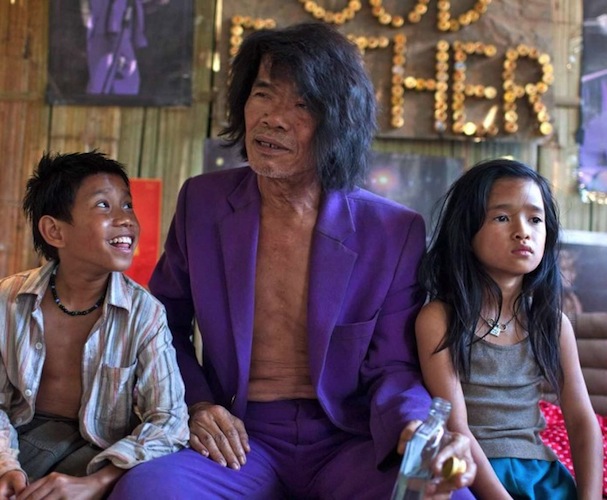Fuse Film Review: This “Rocket” Soars at the Arlington International Film Festival
The Rocket is an absorbing, visually stunning film with a backstory not quickly forgotten.
By Paul Dervis
Last Saturday night the Arlington International Film Festival showcased the four-day fest’s most heralded offering, The Rocket, an Australian produced feature that is currently travelling the world courtesy of the Sundance Film Forward program, the goal of the latter being “to enhance greater cultural understanding, collaboration and dialogue.” After last night’s showing it was clear to see why it was picked.
But it is not an easy film to watch.
We taken into the scorched earth of Laos, the brutal ruins the Americans left behind, the collateral damage of Vietnam. Using this as the film’s landscape, director Kim Mordaunt provides glimmers of hope amid the crushing hopelessness of impoverished people’s lives.
The film opens up with the birth of twins. The starkness of this first scene is at once haunting and compelling. The mother, not knowing she is carrying two babies, is aided by her aged mother-in-law acting as midwife. The old woman, steeped in tribal tradition, believes that one twin is blessed, the other cursed. The second child is still-born and the elder tells the young mother that the live one must be killed in order to keep the community from harm — the surviving child may be the cursed one. Her daughter begs her to keep the secret of the twin birth from others. They bury the dead baby, and keep the pact. But his grandmother will forever be cold and suspicious of the young boy named Ahlo.
Fast forward a decade.
The government needs to flood Ahlo’s town in order to build the damn that will provide much needed electric power. Convinced by official promises that cleaner, better government-built housing and rich soil awaits the residents just over a dangerous mountain, the poor farmers pack what little they have and, by foot, begin the risky trip, believing that plenty awaits.
The journey is fraught with death, and Ahlo’s family does not escape tragedy. They pack their processions in a boat that Ahlo’s mother insists they bring and – arriving at a particularly steep part of the mountain – the boat slips backward, crushing his mother. The grandmother can hold her tongue no longer and she tells everyone that Ahlo is a cursed twin.
Once the people of the town reach the new community, they find housing that is ramshackle, without the plumbing or electricity promised. And the land is impossible to farm. The townsfolk turn on Alho and his family, believing he has brought them bad luck. Along with another outcast, Uncle Purple, and his niece, a young girl named Kia, they leave to find a home of their own. Purple is a former soldier who may have fought the Americans or may have fought with them (no one knows for sure). He is a drunken, seemingly insane James Brown wannabe. But he is savvy. Purple knows the land and the locations of the undetonated, live bombs the U.S. Army left behind so long ago.
They finally reach a town that is hosting a rocket launching competition. It hasn’t rained there for a long time, and the local superstition is that a great rocket blast will bring rain and save the land. There is a considerable reward for the best launch. Alho is convinced that if he builds a rocket, and wins the competition, he can prove he is not cursed. With the help of Purple, he learns how to make a rocket.
And this is where The Rocket fails.
Up until this contrived set-up, the film is dark, visual, unique. Because it was filmed in Laos, the audience is privy to a part of the world hidden from most of us. We glimpse tribal rituals and superstitions that are alien to our Western culture. It is as if we are peeping Toms, peering into people’s windows and catching them during their most devastating moments.
But the ending is all Hollywood. It is strikingly reminiscent of the climax of The Natural. Suffice to say that suspension of disbelief is stretched here to its breaking point and then some. Coming after the film’s first engrossing hour it is a very disappointing conclusion….heartwarming, but disappointing.
Even with this flaw, The Rocket is well worth a look: it is an absorbing, visually stunning film with a backstory not quickly forgotten.
Paul Dervis has been teaching drama in Canada at Algonquin College as well as the theatre conservatory Ottawa School of Speech & Drama for the past 15 years. Previously he ran theatre companies in Boston, New York, and Montreal. He has directed over 150 stage productions, receiving two dozen awards for his work. Paul has also directed six films, the most recent being 2011’s The Righteous Tithe.
Tagged: Arlington International Film Festival, Kim Mordaunt, Laos, Paul Dervis

